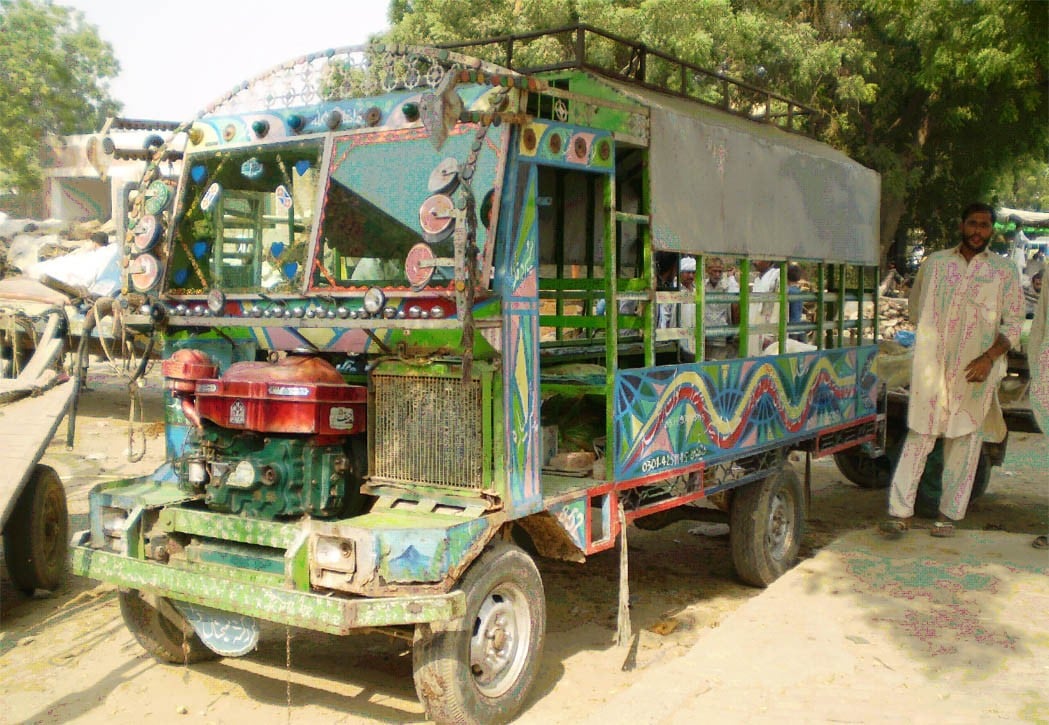
Mohammad Iqbal’s cost-effective invention, a diesel-run four-wheeler, is yet to be recognised as a technological achievement

The industrial stagnation of present-day Punjab is only exemplary in terms of its equally unimpressive past under the British colonial rule. Kept as an agricultural colony for peasants with minimum technological investments and recruitment centres for soldiers and breeding grounds for warhorses, the scope for local technical genius in Punjab was rather limited. This was despite the fact that Sir Ganga Ram, one of the most enterprising innovators and engineers of colonial India, came from Punjab. He had dozens of agricultural patents to his credit and represented his country in the Indian Industrial Commission in London, yet, in Punjab, the development of industrial education was not a priority.
Not much has changed in Punjab in the past six decades of industrial development in Pakistan. Technical education is largely funded through donor-driven projects with minimal budgetary allocations. The efforts of local mechanics in developing indigenous solutions to technological needs remain unacknowledged.
Pakistanis though, respond well to the hilarious claims of car runs on water!
However, in the last few decades, a local innovation that gained immense popularity in villages of Indian and Pakistani Punjab, is a vehicle, called Petter Rehra in India and Petter Dala in Pakistan. It is a locally-assembled vehicle plying on the roads of hundreds of villages and towns in both Punjabs.
This diesel-run four-wheeler, owes its name to the Petter engine used for pumping water. A reliable substitute for an animal-drawn cart in villages, it dots the agricultural landscape of Punjab. Its body is made of steel angles and wooden planks. Out of the four wheels, the two front ones are steerable and the two rear ones directly attached to the engine via a simple gear-assembly. It is, of course, not meant for high-performance, and mostly cannot move at more than 25 km per hour.
Meant to carry both passengers and goods, the Petter Dala serves a vital link between the village and the market. Without a direct transport from villages to towns, villagers had to walk or ride an animal-drawn cart to get to the nearest highway and then wait for bus or wagon to get to town. In the case of a medical emergency, this route to town was a living nightmare. With Petter Dala, this has changed.
Petter Dala became popular mainly because of its cost effectiveness. Shortly after its invention by 35-year-old Muhammad Iqbal, a self-taught mechanic, who set up his own business in Mandi Faizabad, district Sheikhupura in 2000, the number of this vehicle increased manifold in rural areas. And the number is on the rise. The number of mechanics increased in Boraywala, Faizabad, Jaranawala, and other adjoining areas, all working without a design patent under a copyright act.
Petter Dala is being produced in different sizes and shapes. If Jaranawala is known for its mini bus-like Dala, the neighbouring Shah Kot offers a much larger ship-like version that can accommodate up to 100 persons.
The exact number of Petter Dala is unknown mainly because they are not registered under the Motor Vehicle Ordinance. An effort was made by the drivers towards its registration when in 2001 through Ch M. Sharif they approached the Lahore High Court. However, no success was registered.
Although the production has not acquired an industrial scale, as the enterprise still remains a family and workshop affair, the scale of production is still impressive. With two to three persons working in one workshop on an average two vehicles per month can be produced.
Iqbal, the local innovator of Petter Dala had ambition of joining the Pakistan Air Force as a mechanic, but he failed to qualify in the medical test for the service. It was his inventive mind that led him to build a vehicle out of scraps of metal. Iqbal sold the first vehicle for Rs60,000 and now its price has risen to Rs250,000 to 300,000, depending on the range of accessories.
Iqbal continues to improve his contraption. His first engine worked with a fan belt without gears, but after a few months, a four-gear system with a propeller, modified from Toyota gearbox was introduced. Its body parts have improved with time.
Having built more than 300 vehicles in his workshop, he claims he can make agricultural machinery, tractors and harvesters with the Petter engine. However, such claims remain untested, as there is little support coming from private or government quarters.
Iqbal’s invention has not been recognised -- not even as a minor technological achievement. The technical and vocational institutions, which have the mandate to improve the quality of technical education in Punjab, are staffed with engineers, who would rather hide their heads in shame then recognise the technical aptitude and inventive genius of this unlettered mistri.